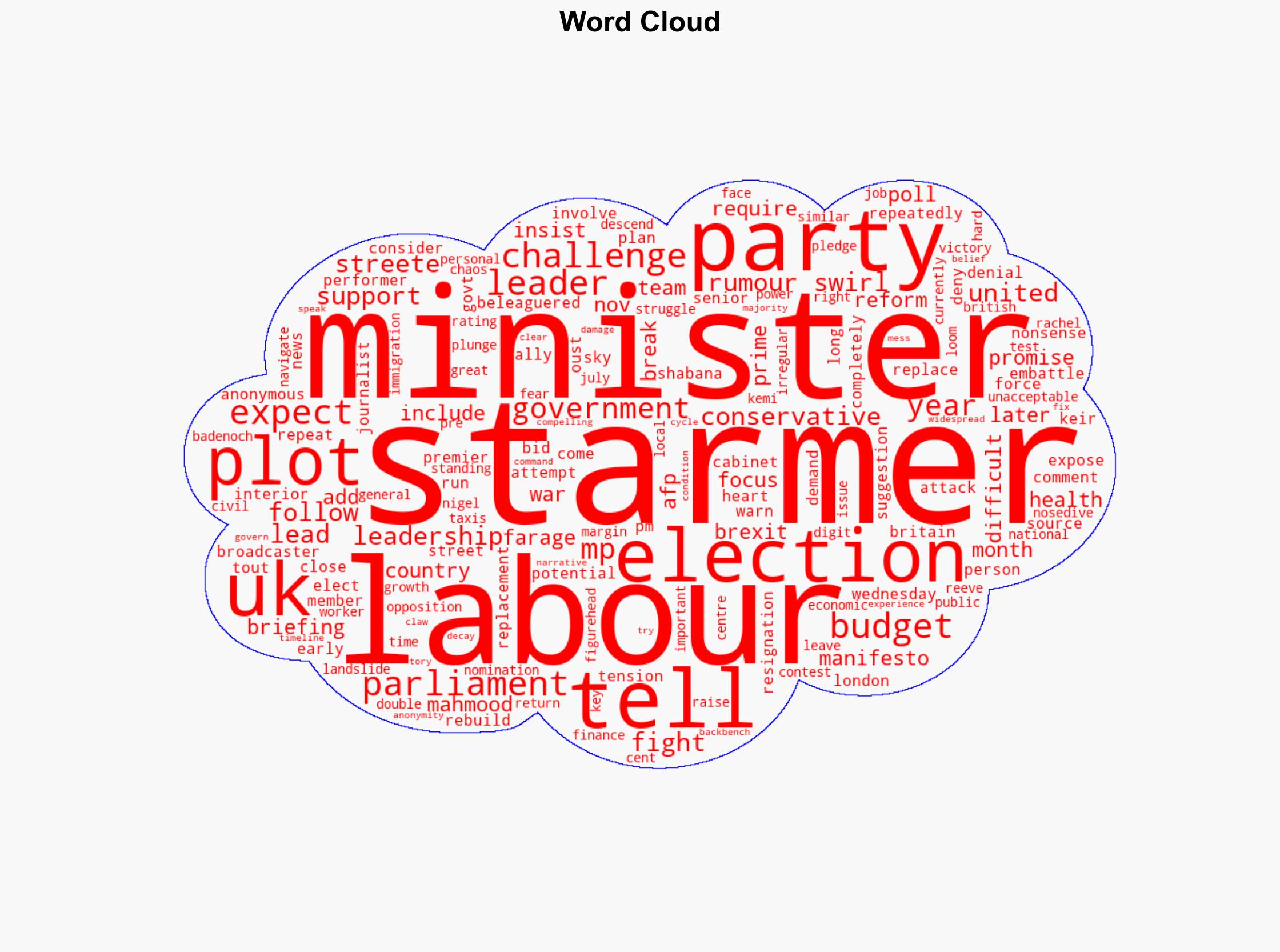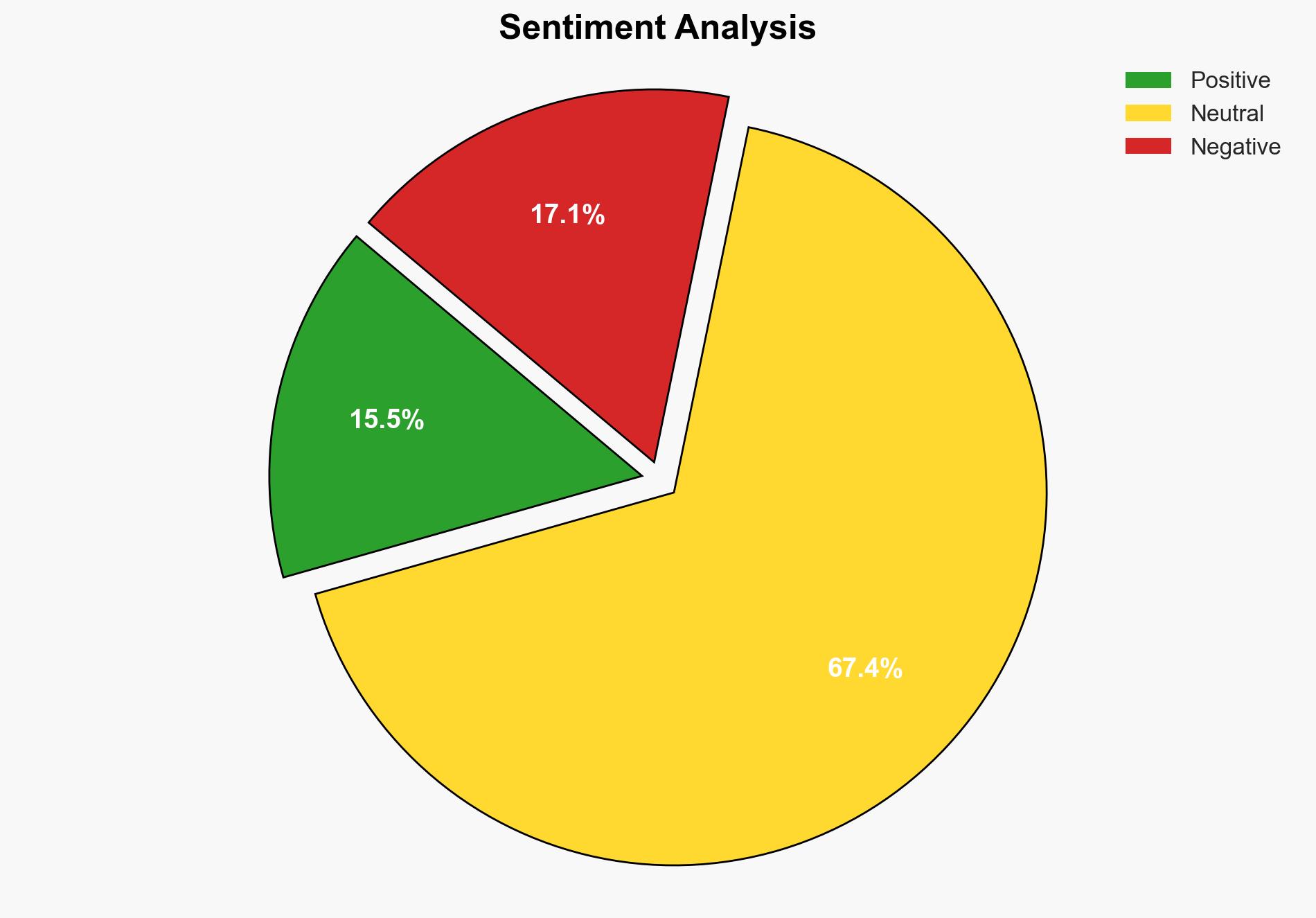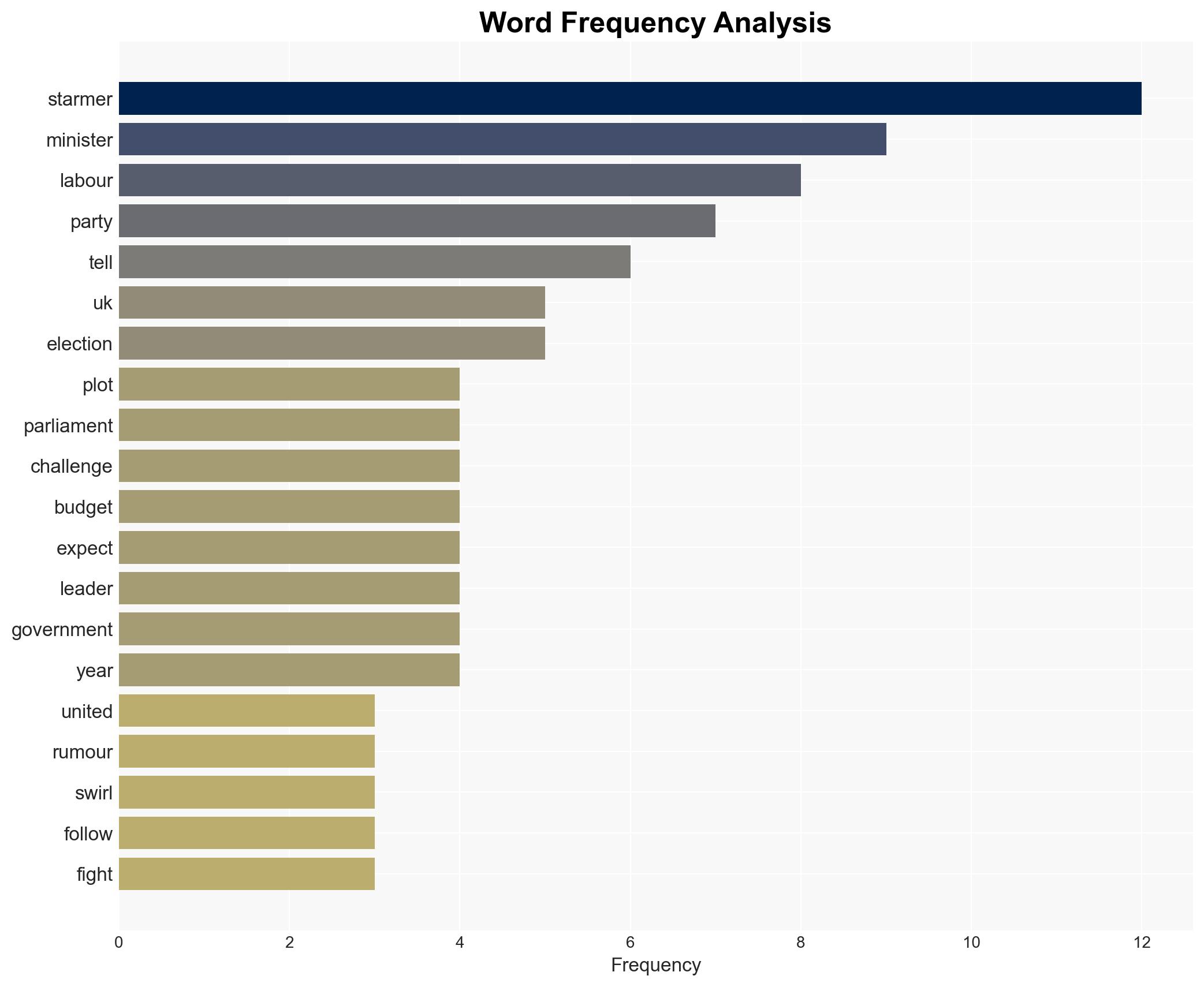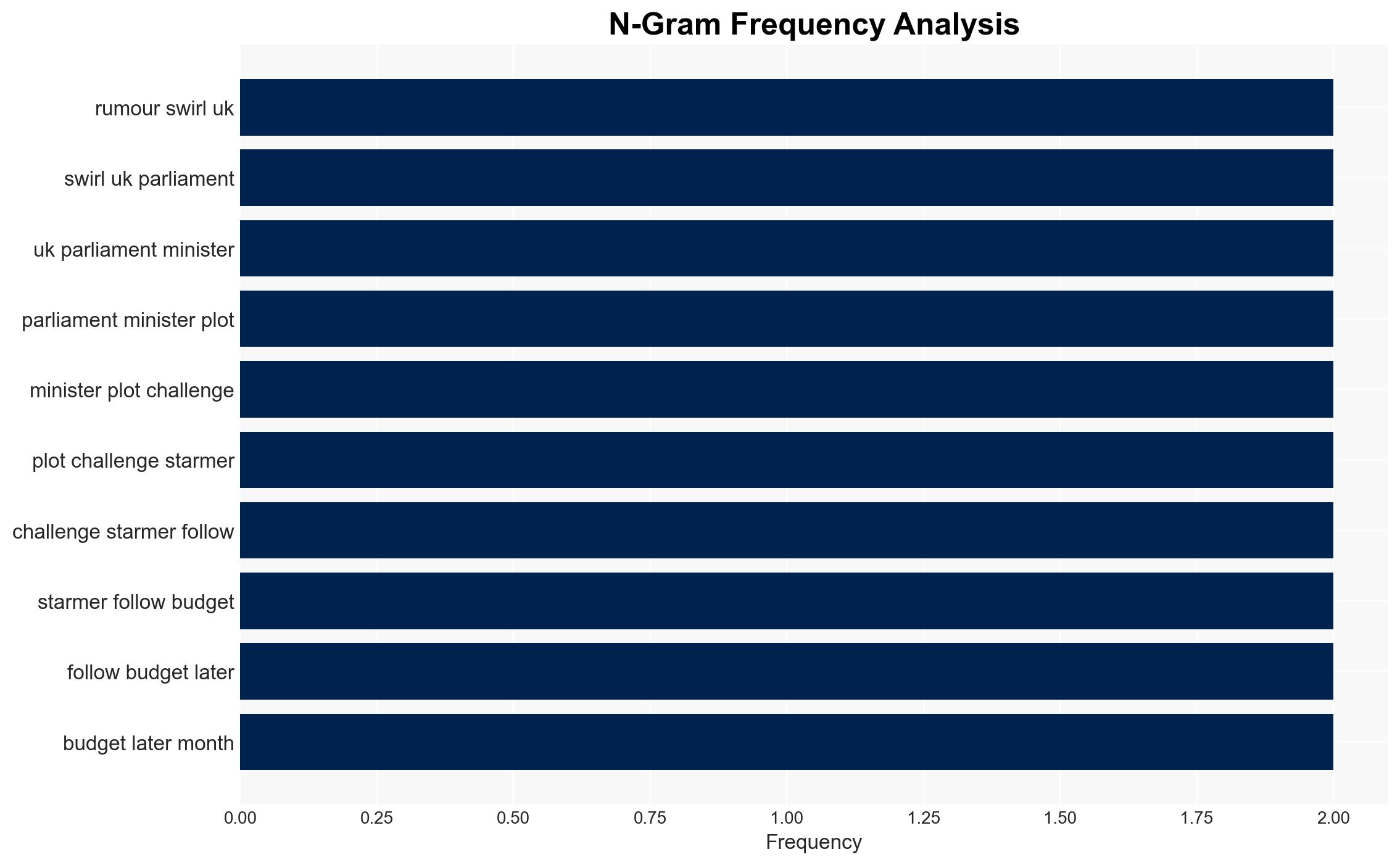UK minister denies plotting against PM Starmer as rumours swirl – CNA
Published on: 2025-11-12
AI-powered OSINT brief from verified open sources. Automated NLP signal extraction with human verification. See our Methodology and Why WorldWideWatchers.
Intelligence Report: UK minister denies plotting against PM Starmer as rumours swirl – CNA
1. BLUF (Bottom Line Up Front)
With a moderate confidence level, the most supported hypothesis is that the rumours of a plot against PM Keir Starmer are primarily a result of internal party tensions and external political maneuvering rather than an imminent leadership challenge. It is recommended that the Labour Party leadership focus on consolidating internal support and addressing policy challenges to mitigate potential destabilization.
2. Competing Hypotheses
Hypothesis 1: The rumours of a plot against PM Starmer are a result of genuine internal dissent within the Labour Party, potentially leading to a leadership challenge.
Hypothesis 2: The rumours are primarily driven by external political forces and media speculation, with no substantial internal threat to Starmer’s leadership.
Hypothesis 2 is more likely due to the lack of concrete evidence of organized dissent and the repeated public denials by key ministers. The timing of these rumours, coinciding with budgetary challenges and external political pressures, suggests a strategic attempt to destabilize the Labour Party’s leadership image.
3. Key Assumptions and Red Flags
Assumptions: It is assumed that the public denials by ministers are truthful and that the Labour Party’s internal mechanisms for leadership challenges are intact and would require significant MP support.
Red Flags: The anonymous briefings and media reports could be indicative of a strategic disinformation campaign. The lack of named sources and the timing of the rumours suggest potential manipulation.
4. Implications and Strategic Risks
The primary risk is political destabilization within the Labour Party, which could weaken its position ahead of upcoming elections. A leadership challenge, even if unfounded, could divert attention from pressing policy issues such as economic growth and immigration. Additionally, the perception of internal division could be exploited by opposition parties, notably the Conservatives and the Reform UK party, to gain political advantage.
5. Recommendations and Outlook
- Actionable Steps: Labour leadership should engage in transparent communication with party members to reinforce unity and address any underlying concerns. Proactive media engagement to counteract rumours is essential.
- Best Scenario: The Labour Party successfully quells the rumours, reinforcing internal cohesion and focusing on policy delivery, thereby strengthening its electoral prospects.
- Worst Scenario: Persistent rumours lead to a fractious leadership challenge, destabilizing the party and diminishing its electoral appeal.
- Most-likely Scenario: The rumours dissipate with no significant leadership challenge, but the Labour Party faces ongoing scrutiny and pressure to deliver on policy promises.
6. Key Individuals and Entities
Keir Starmer, Shabana Mahmood, Wes Streeting, Rachel Reeves, Kemi Badenoch, Nigel Farage.
7. Thematic Tags
National Security Threats, Political Stability, Media Influence, Leadership Dynamics
Structured Analytic Techniques Applied
- Cognitive Bias Stress Test: Expose and correct potential biases in assessments through red-teaming and structured challenge.
- Bayesian Scenario Modeling: Use probabilistic forecasting for conflict trajectories or escalation likelihood.
- Network Influence Mapping: Map relationships between state and non-state actors for impact estimation.
Explore more:
National Security Threats Briefs ·
Daily Summary ·
Methodology





